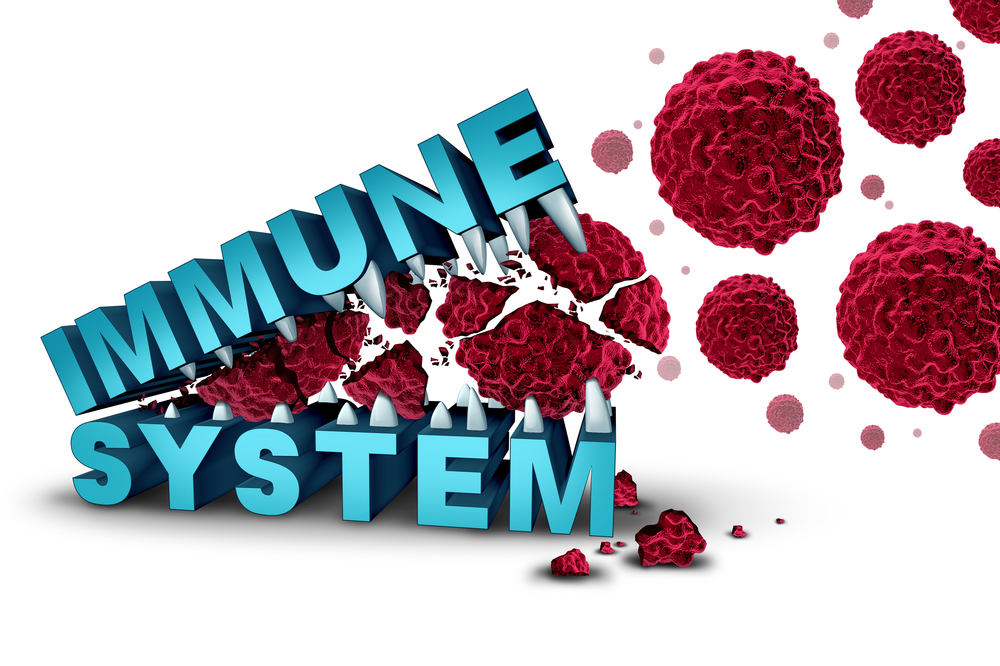Immunotherapy can be considered as nontoxic or minimally toxic; it is important to know that they can be well tolerated, but can also be associated with immune-related side effects that range from minor to serious life-threatening effects.
Facts about Immunotherapy
The immune system is entirely made up of cells, tissues, and organs that work together to protect the body from a foreign organism such as a germ enters the body, the immune system recognizes and then attacks it to prevent harmful effects. This is often called as an immune response. Immunotherapy is a biological therapy for cancer patients that increase the natural ability of the patient’s immune system to fight against the life-threatening disease. Immunotherapy allows the person’s immune system to identify, select, target and then destroy the cancer cells.

Also Read: Skin cancer prevention is as crucial as treatment
Certain types of immunotherapy target cancer cells or slow the progression of the disease by stopping the spread to other parts of the body. While others make it easier for the immune system to kill those abnormal cells. A healthcare specialist may suggest an immunotherapy after or at the same time as another treatment including chemotherapy.
Types of Immunotherapy
There are different types of immunotherapy, including cancer vaccines, non-specific immunotherapies, monoclonal antibodies, oncolytic virus therapy, and T-cell therapy. Similarly, like antibodies that your body produces, monoclonal antibodies act to fight against harmful substances. There are especially discovered to target a specific protein in the abnormal cells. These can also be called as checkpoint inhibitors. Such type of cancer therapies allows the immune system to kill cancer cells. Another type of immunotherapy may deliver small radiation doses or other pharmaceutical cancer agents to the abnormal cells. Vaccines for the management of cancer are still uncommon, but many are being studied for safety and efficacy in clinical trials. When a vaccine is infused, it exposes the immune system to the antigen. This action triggers the body’s immune system to specifically target and destroy the antigen or associated material.
Side Effects of Immunotherapy
Along with benefits, the cancer therapy may cause side effects too. Different immunotherapies cause different adverse effects. One may experience side effects depending on the type of cancer, location, treatment doses and of course overall health. The side effects of immunotherapy are unique to each individual and treatment. In some people, the side effects last for a short time while in others, these negative effects last through the end of the treatment and beyond.
The side effects of checkpoint immunotherapy different from other cancer therapies. It is not possible for everyone to develop the same side effects. The occurrence of side effects depends on the type of immunotherapy you receive and how you respond towards it. Immunotherapy can cause inflammation in any of the body organs. Therefore, people having an autoimmune disorder such as rheumatoid arthritis or lupus may find it difficult To receive immunotherapy. One must discuss the autoimmune disease with a health care provider.
Side effects from monoclonal antibody treatment include low blood pressure and flu-like symptoms such as a headache, chills, fever, vomiting, and weakness. Whereas non- specific immunotherapies may cause an increased risk of infection, thinning hair, and rashes, as well as flu-like symptoms. Most side effects disappear once the treatment is done.
Side effects are more likely to be more severe if you are using immunotherapy with other cancer treatments. The overall common side effects associated with the use of immunotherapy are a pain in the joints, dry, irritated eyes, skin rashes, diarrhea, bloody stools, bloating, and abdominal pain. However the rare once include changes in vision, headache, coughing, shortness of breath, dark urine, yellowing of eyes, severe abdominal pain, and thyroid related issues.
Management of Immunotherapy side effects
- Your health care provider might provide you the immune-boosting medicines for the preventing or decrease the side effects. In severe cases, your healthcare provider may change the dose or stop the immune boosters to prevent side effects. There are some easy ways to get rid of the side effects of immunotherapy. These are given below:
- Eat an immune-boosting diet which includes foods likecitrus fruits, broccoli, yogurt, almonds, garlic, spinach, bell peppers, etc. These immune system booster foods help your immune system to improve its ability to fight against infections.
- Take enough rest
- Reduce alcohol consumption
- Quit smoking
- Regular exercise
Also Read: 10 Simple and Natural Ways to Boost Your Immune System
Involve these healthy tips in your daily routine for getting rid of immunotherapy side effects. You can also take supplements to improve your immune system. The market is overloaded with immune system boosters, but make sure you get one of such supplement only after having a discussion with your healthcare provider. Furthermore, sometimes social or emotional support can help you during cancer therapy.



